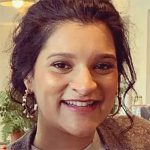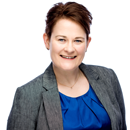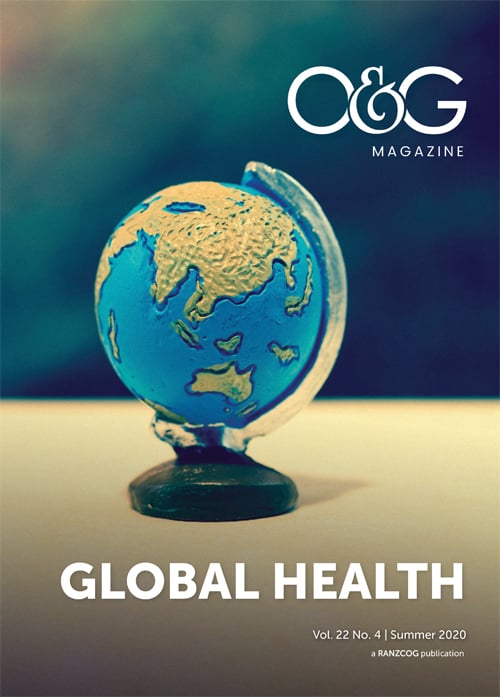A multidisciplinary team from around Australia have participated in the Bali International Combined Clinical Meeting (BICCM), held annually in Denpasar for the last 10 years. These meetings are a collaboration between Indonesian and Australian maternity and neonatal care providers and provide a platform for us to learn from and offer maternity and neonatal education and training. We have participated in the meetings since 2018. Unfortunately, this year marks the first year that we have not been able to attend due to the coronavirus pandemic.
The collaboration between maternity care providers in Bali and Australia was founded by A/Prof John Svigos in 1998, with the aim to improve the maternal mortality rates in Bali. He nurtured trust and formed professional relationships with Sanglah Hospital’s O&G Unit, initially as a solo effort for the first decade and in the second decade with a multidisciplinary team of junior and senior obstetricians and trainees, midwives, neonatologists, infection disease specialties and anaesthetists mainly from Adelaide. A/Prof Rosalie Grivell has been the successor to A/Prof John Svigos in continuing these strong affiliations with Sanglah Hospital’s O&G Unit, and in coordinating the annual BICCM.
Travelling to Denpasar with A/Prof Rosalie Grivell and many of our multidisciplinary colleagues has been, and will continue to be, an exciting time in our O&G training. It gave us a first-hand opportunity to gain an appreciation of a different medical system and to understand the sorts of improvisations needed when working with different technologies and in societies with different access to medical resources. BICCM opened up an opportunity for us to experience medicine in a different cultural context. We know that culture plays a pivotal role in people’s willingness to seek and accept medical care, and if we can understand the interaction between culture and medicine, then we can help our culturally and linguistically diverse patients navigate our healthcare system. Australia is a multicultural nation and thus experiences like these provide us with perspectives that we can apply to our local practice, especially when treating patients from different cultural and linguistic backgrounds.
Each year, the meeting has a different focus and specialists volunteer their time to provide contemporary information and training. The presentations given by Australian and Balinese specialists highlight that resource availability and active management of diseases is vastly different. Interesting discussions ensue about the treatment approaches that provide women and their babies with the best evidence-based care practicable, within the obvious constraints of a developing country. This year we wanted to focus on Tim Sim (Team Simulation) training, as this was successful in previous years, illustrating the complimentary roles of the multidisciplinary team. Peer-to-peer teaching is a way for us to overcome the hierarchal workforce structure in Bali as A/Prof Rosalie Grivell has mentioned in her article. The meeting provides us with the opportunity to engage with new colleagues from Indonesia as well as allowing us to network and appreciate the role each team members plays in the local setting. Training in the field of O&G in Indonesia takes four years. Their trainees do not get paid a salary, instead their work is seen as a service to the hospital while still having to pay their training fees. Their junior trainees observe for many years before hands-on experience in the field. Hearing their stories, you cannot help but feel a sense of empathy, but also gratitude for being a trainee within RANZCOG.
We also partake in tours of the hospital, visiting their labour ward, special care nurseries and antenatal and postnatal wards. It was interesting to see that of the 13 patients that were on the postnatal ward the day we visited, two women had vaginal births, 10 women had a caesarean section and 1 woman had a caesarean hysterectomy. However, keep in mind that Sanglah Hospital is the largest tertiary level referral hospital in Bali and, generally speaking, would care for the very sick antenatal and postnatal women. The tour of the nursery also struck a chord. Newborn babies are kept away from their mothers due to risk of infection. Well and unwell babies are kept together in the nursery and the very unwell babies whose parents can afford medical treatment are kept in their neonatal intensive care unit. We also sit in on their weekly perinatal morbidity and mortality meeting. An eye-opening and heart-wrenching meeting for us all and a major driving force of why we choose to go back every year; highlighting the lifelong goal for our team in reducing the maternal and neonatal mortality rates in Bali. This endeavour has made us particularly aware of the fortunate situation we find ourselves in every day, with the high standard of healthcare provided in Australia at no cost to the patient or their families.
On a different note, not only were we able to participate in the educational content of the conference and visit multiple different local health facilities, our very friendly hosts made sure we also had a chance to participate in social events and visit culturally important local sites. Every year, our Balinese colleagues host a ‘family dinner’ in which we are privileged to experience and participate in their rich culture of dance and music while enjoying their flavourful cuisines. It is a time for all of us to drop the formalities and sing and dance together on the beautiful beaches of Bali as friends.
Despite all the wonderful work that the Balinese and Australian teams have achieved, there is still a long way to go. With Indonesia being the world’s fourth most populous nation, access to maternity care is limited, especially for those women in rural and remote regions. Achieving and sustaining meaningful global health changes takes a lifelong commitment as evident by the works of A/Prof Rosalie Grivell and A/Prof John Svigos, and we are very fortunate to be alongside them on this journey.








Leave a Reply